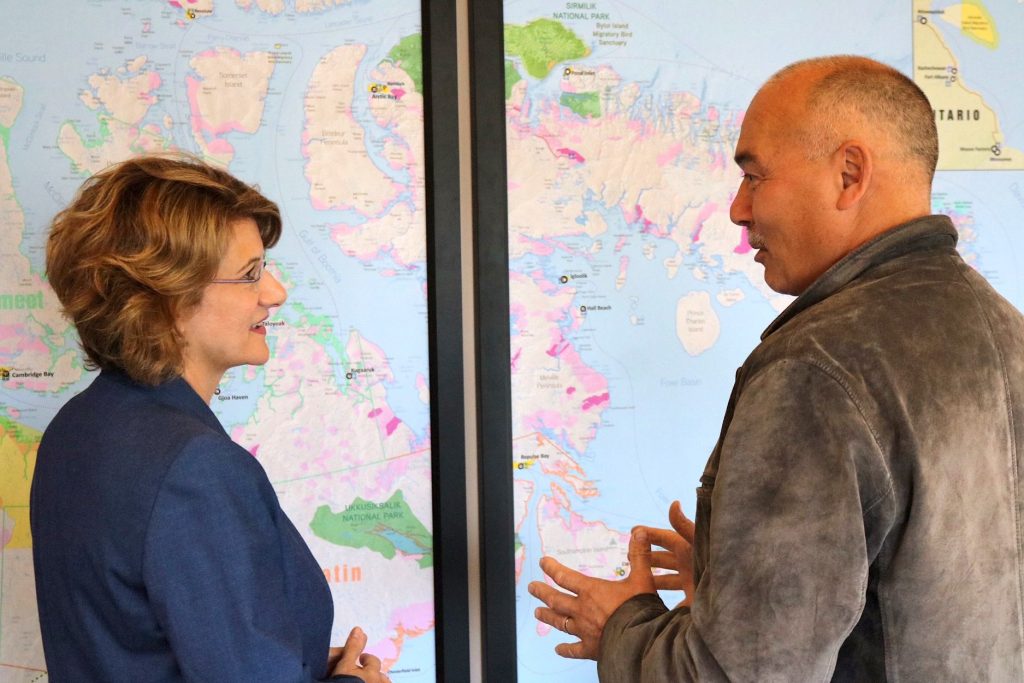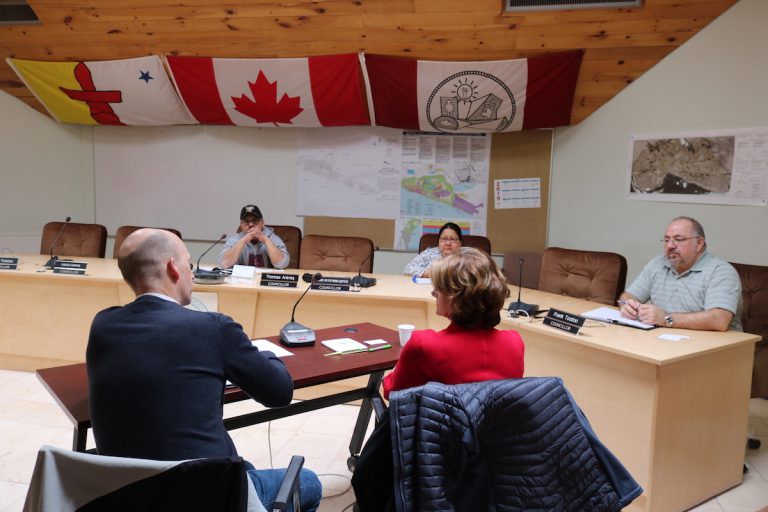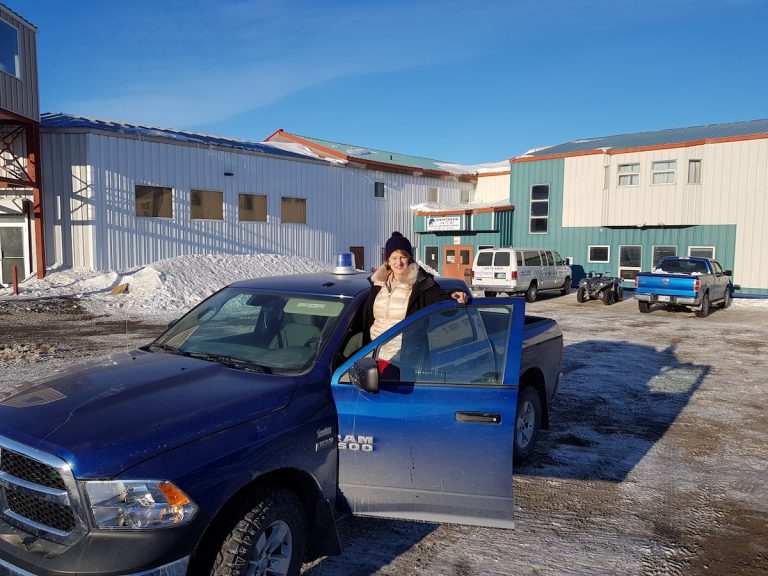The US is set to host visitors from Canadian Arctic on fact-finding trip to Alaska
“We want to connect your Arctic to our Arctic.”

Representatives from across northern Canada will head later this week to Denver, Colorado, and then up to Alaska, in search of ways to apply renewable technologies back home.
Participants include Cynthia Ene, the CEO of Illu Inc. in Cambridge Bay; Barrie Ford, the deputy director of Kuujjuaq’s Nunavik Research Centre; and Tooma Ryan Natsiq, a climate change mitigation specialist with the Government of Nunavut.
The cost of the 10-day tour is being picked up by the U.S. Department of State’s International Visitor Leadership Program.
It’s the kind of north-to-north exchange that the U.S. consulate general for Quebec City, who also covers Nunavik and Nunavut, wants to see.
“The U.S. is committed to the Arctic,” said Consul General Allison Areias-Vogel during a recent visit to Iqaluit, her fourth since becoming a consul general three years ago.
“We’re committed to a peaceful, prosperous Arctic and we want to make sure we support Canada and its development. So we want to connect your Arctic to our Arctic.”
When many think about U.S.-relations in the Arctic, the focus often falls on to sovereignty and security and the difference of opinion about whether the Northwest Passage is an international waterway, as the U.S. asserts, or belongs to Canada.
The lack of consensus on that point is “not at all” at a crisis point, Areias-Vogel said.
During her posting as consul general, which ends this summer, Areias-Vogel has concentrated her northern efforts on promoting economic and educational exchanges.
She’s visited Kuujjuaq a few times and regularly attended the Nunavut Trade Show. Earlier this month she came again to Iqaluit and also went to Rankin Inlet and Baker Lake to make connections: “We are always looking youth leaders for leadership training,” she said.
While the U.S. doesn’t fund Canadian projects directly, there is money through U.S. programs to bring up experts from the U.S. north to share their expertise with groups or link them up through video-conferencing.
To encourage more to outreach, the Quebec City consulate recently started a Facebook page with information on programs and activities.
While in Iqaluit, Areias-Vogel visited Nunavut Arctic College, spoke with Iqaluit Mayor Madeleine Redfern and met with Premier Joe Savikataaq as well as with emergency management officers, one of whom will travel to Alaska soon for some training, she said.
Keeping track of and protecting U.S. citizens in the Canadian Arctic is also part of her job, so, for example, she wants the Qikiqtani General Hospital to know what to do if a passenger is offloaded in Iqaluit from an international flight for medical treatment.
Last August, the consulate and embassy in Ottawa had their hands full after the cruise ship Akademik loffe ran aground in the Gulf of Boothia on Aug. 24, with 160 crew and passengers were on board.
Many were American citizens, including six polar science students from the University of Illinois and 37 scientists from the University of Rhode Island.
The embassy and consulate general helped gather information on the Akademik Ioffe’s situation and the health and status of the American passengers.
Earlier this month, a team of consular members travelled to Gjoa Haven and Kugaaruk to meet mayors Joanni Sallerina and Canute Krejunark, economic development representatives, RCMP officials, and search and rescue teams to revisit the response to the cruise ship’s grounding.
At the same time, the U.S. visitors presented their public diplomacy programs, including youth ambassadors, to promote Inuit youth participation.

